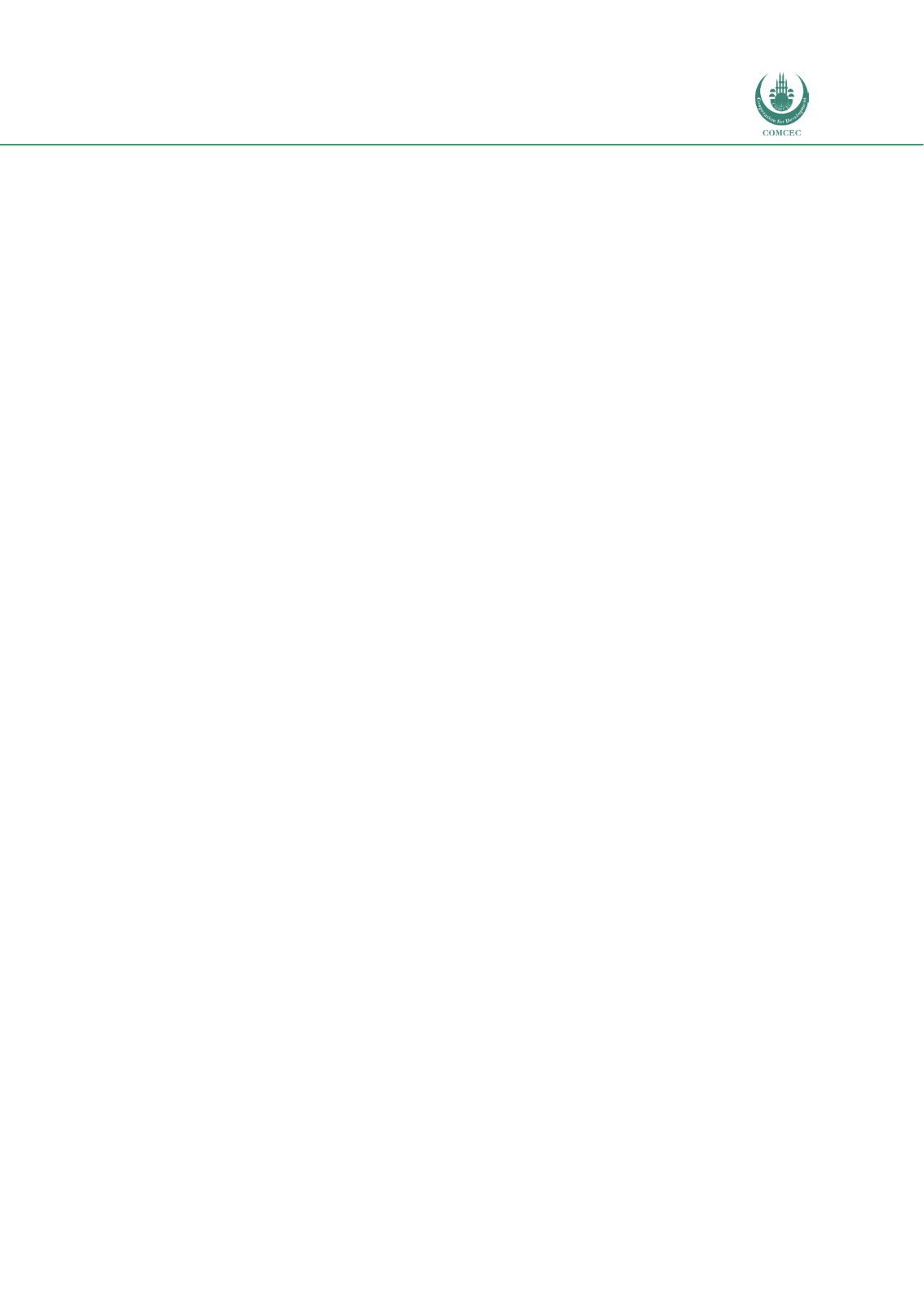

Infrastructure Financing through Islamic
Finance in the Islamic Countries
187
complex and costly, involving investment banks, it is recommended that a GLC be established
that can develop standardized templates for sukuk and advise on the structuring and issuance
of sukuk at lower costs. This will contribute to the development of the sukuk market and also
help raise funds for infrastructure projects.
A well-developed efficient sukuk market also has the potential to expand the investors’ base to
include both institutional and retail investors. Retail sukuk not only opens up opportunities to
raise funds from a source that is not tapped into but also contributes to financial inclusion by
providing retail investors opportunities to invest in alternative savings instruments.
6.3.
Issues and Policies for the Islamic Social Sector
In many Muslim countries, there are huge resources that can be collected from the institutions
of zakat and waqf for providing services to the poor and the deprived. The social sector has the
potential of providing some of the social infrastructure services. While the potential from these
sources is great, these instruments have not been used extensively, partly because they are not
organized and structured in an efficient manner. The country case studies, however, provide
some examples of novel ways in which the Islamic social sector can contribute to the provision
of social infrastructure services to the poor and needy. In this regard, the Waqf Al-Nur in the
state of Johor of Malaysia has established hospitals for the poor, and Indonesia has pioneered
the Cash Waqf Linked Sukuk which will raise charitable funds and be used for public projects
such as schools and hospitals. Similarly, the micro hydro-electricity project in Indonesia jointly
implemented by BAZNAS and UNDP by using zakat funds is a good example of innovative ways
of using the Islamic social sector to provide infrastructure services to the deprived segments of
the population.
6.4.
Issues and Policies at the International Level
The Islamic Development Bank (IDB) is the only multilateral development bank that has a
mandate to provide Shariah-compliant project financing. Other than using its capital, IDB also
raises funds from the market by issuing sukuk to finance its activities, which limits the source
of international Islamic financing for infrastructure investments. The overall Shariah-
compliant funds available for 57 IDB member countries is relatively small. Since 2016, IDB has
provided financing of USD 7.123 billion for 148 projects, which is an average of around USD
125 million per country, with the average size of the projects financed being USD 48.1 million
only. Thus, there is a need to seek other international sources of Sharia-compliant funds.
While IDB has launched infrastructure funds and partnered with other multilateral
development banks such as Asian Development Bank to seek funds for project financing, these
are still not adequate and not done consistently. Thus one of the recommendations of this
study is to establish an International Islamic Infrastructure Bank (IIIB) that will be devoted
towards mobilizing funds and investing these in infrastructure projects. Since infrastructure
projects are large and complex, the proposed IIIB will provide financing and also offer other
technical assistance and advisory services to enhance the capabilities and skills needed in the
development of infrastructure projects. These would include, among others, providing a
framework for supportive laws and regulations and also developing contractual templates that
can be used by different countries to provide Shariah-compliant financing for project financing.
Finally, there is a need to increase the knowledge base and build the capacity of professionals
of Islamic financial institutions to facilitate investments in the infrastructure sector.
















